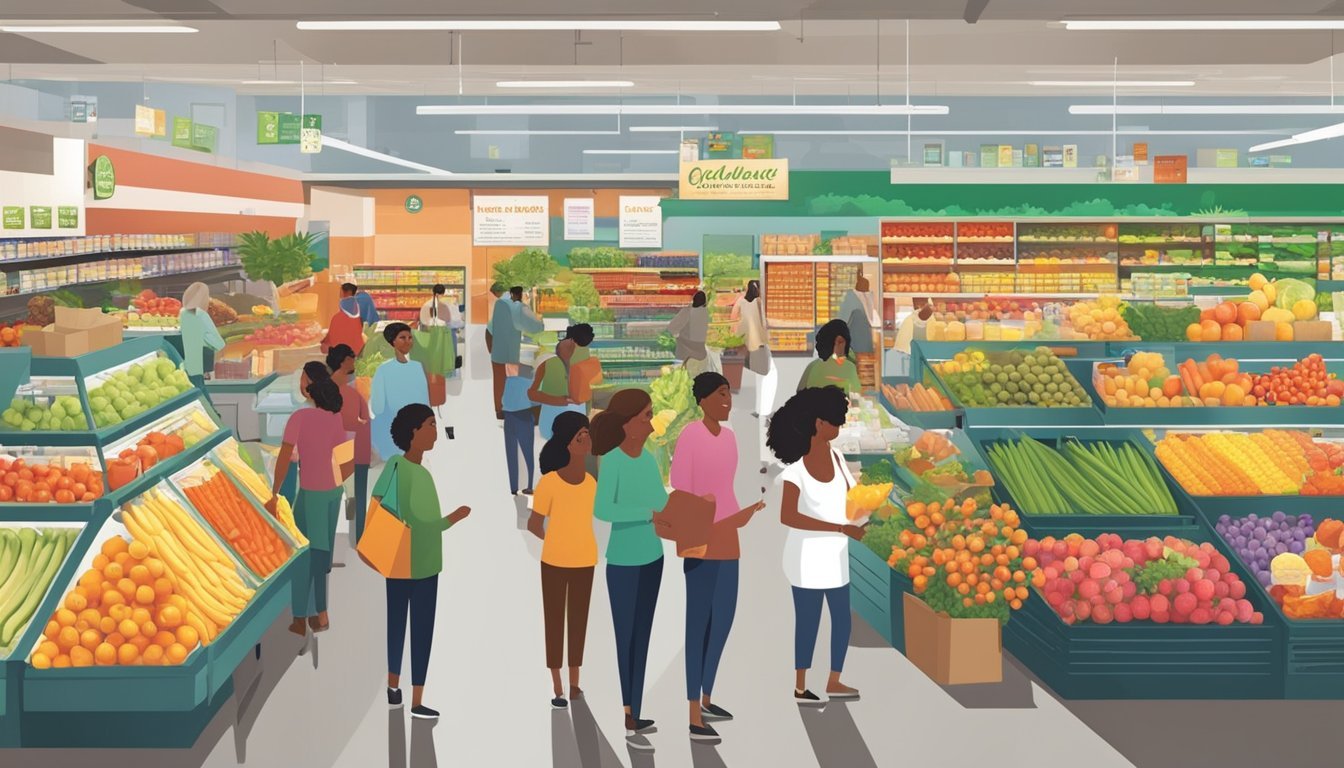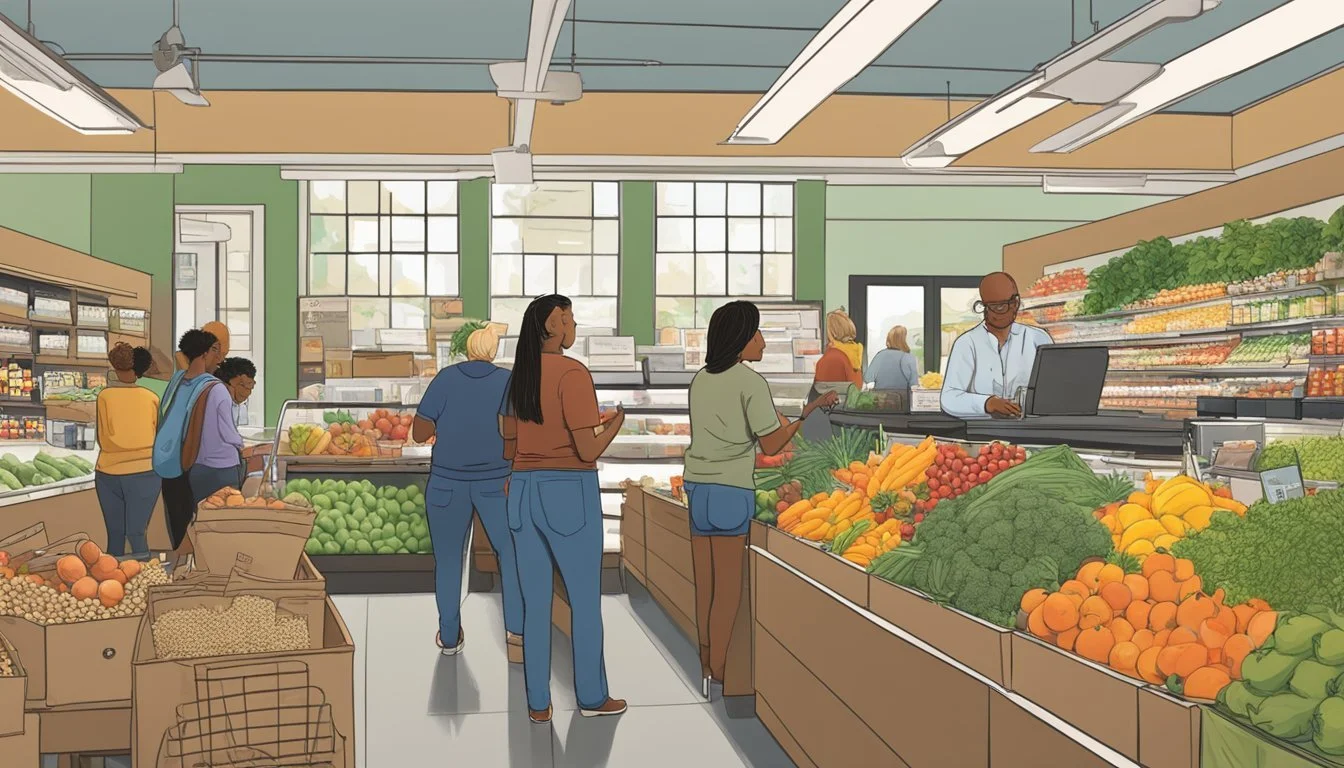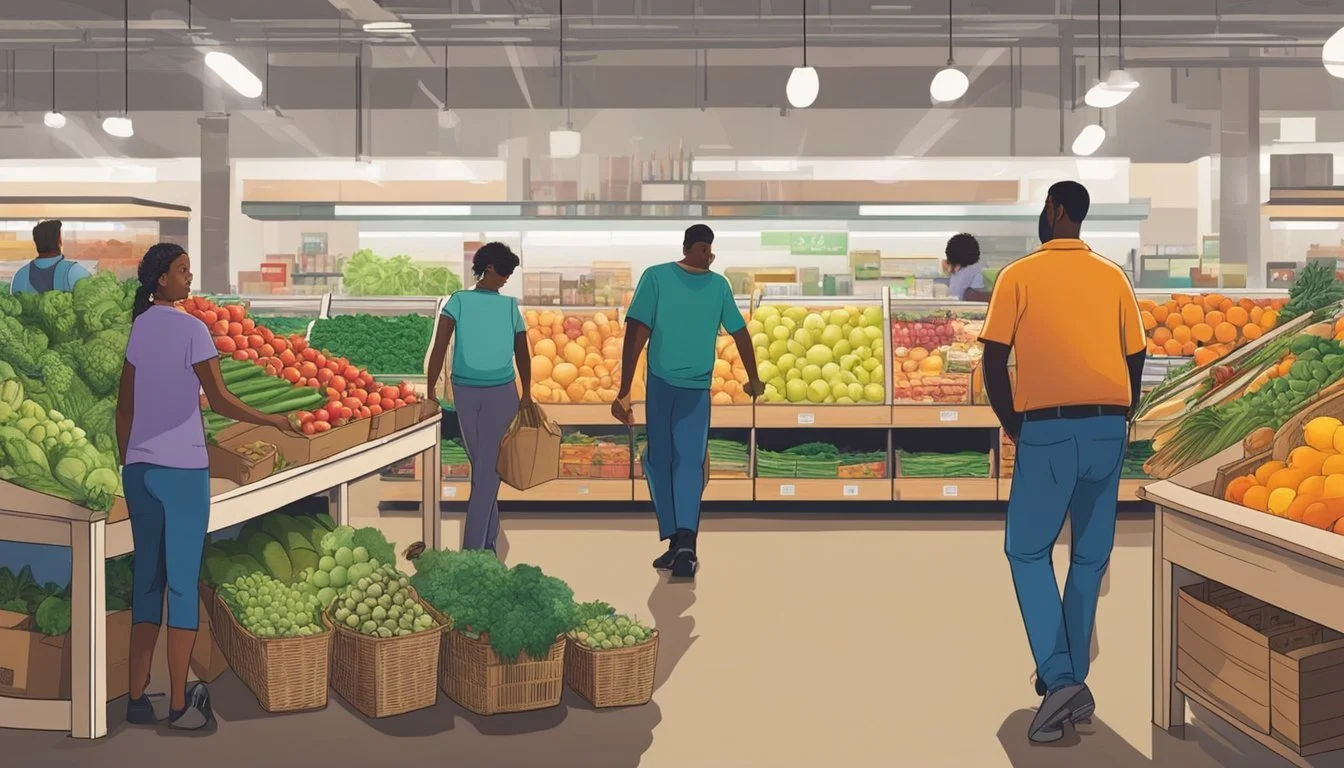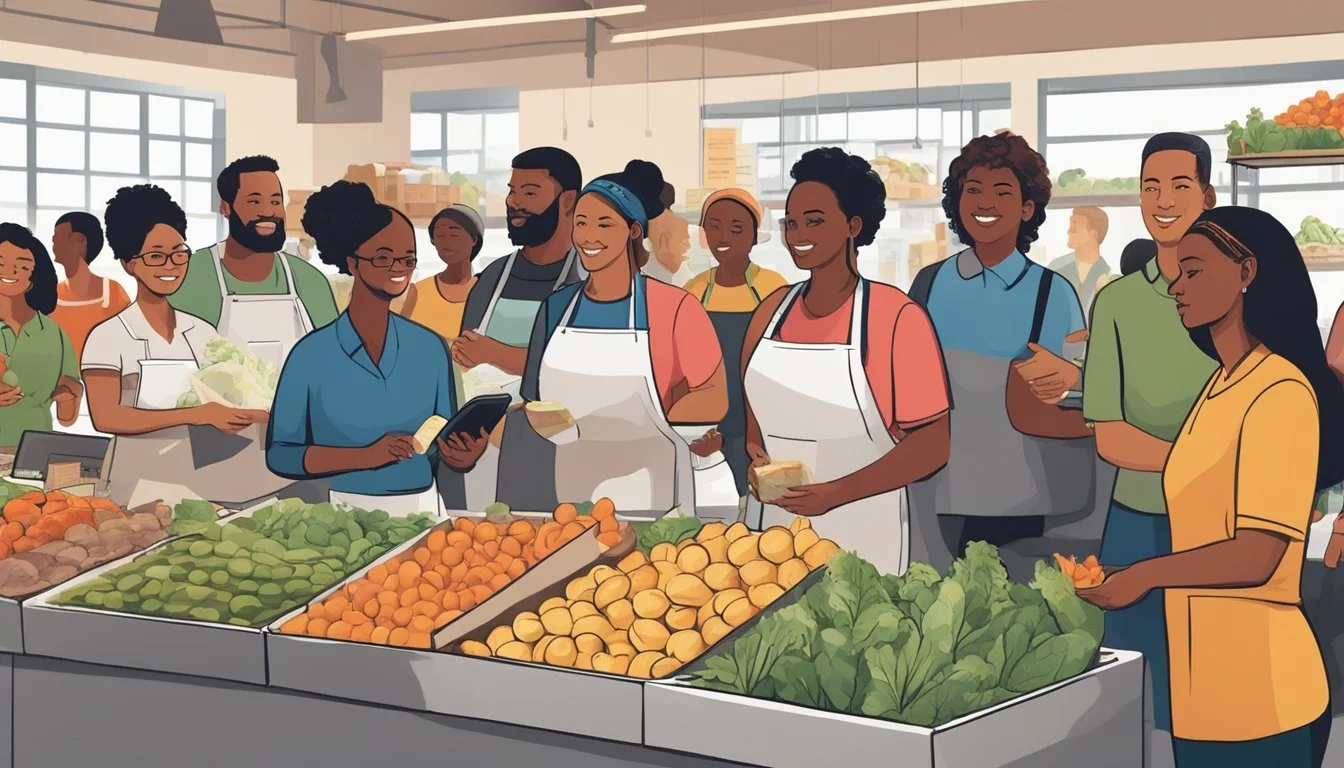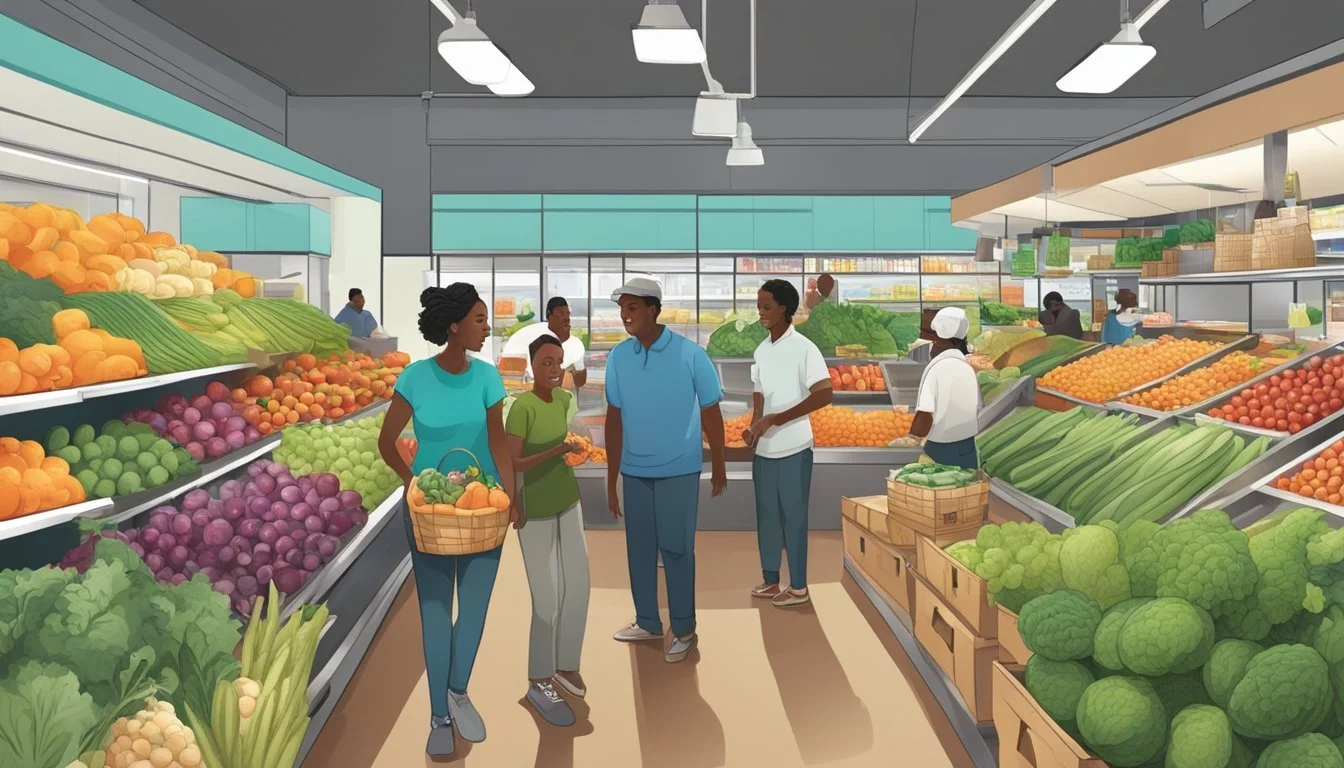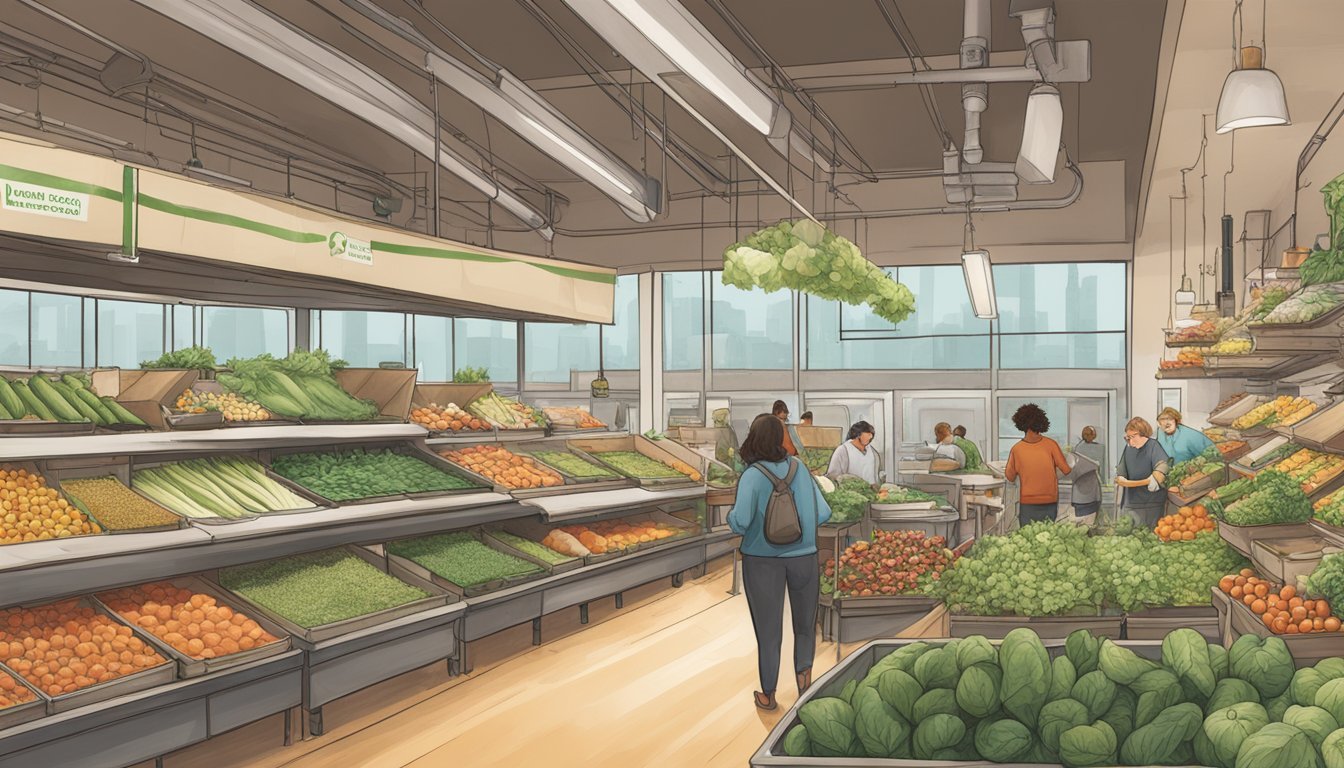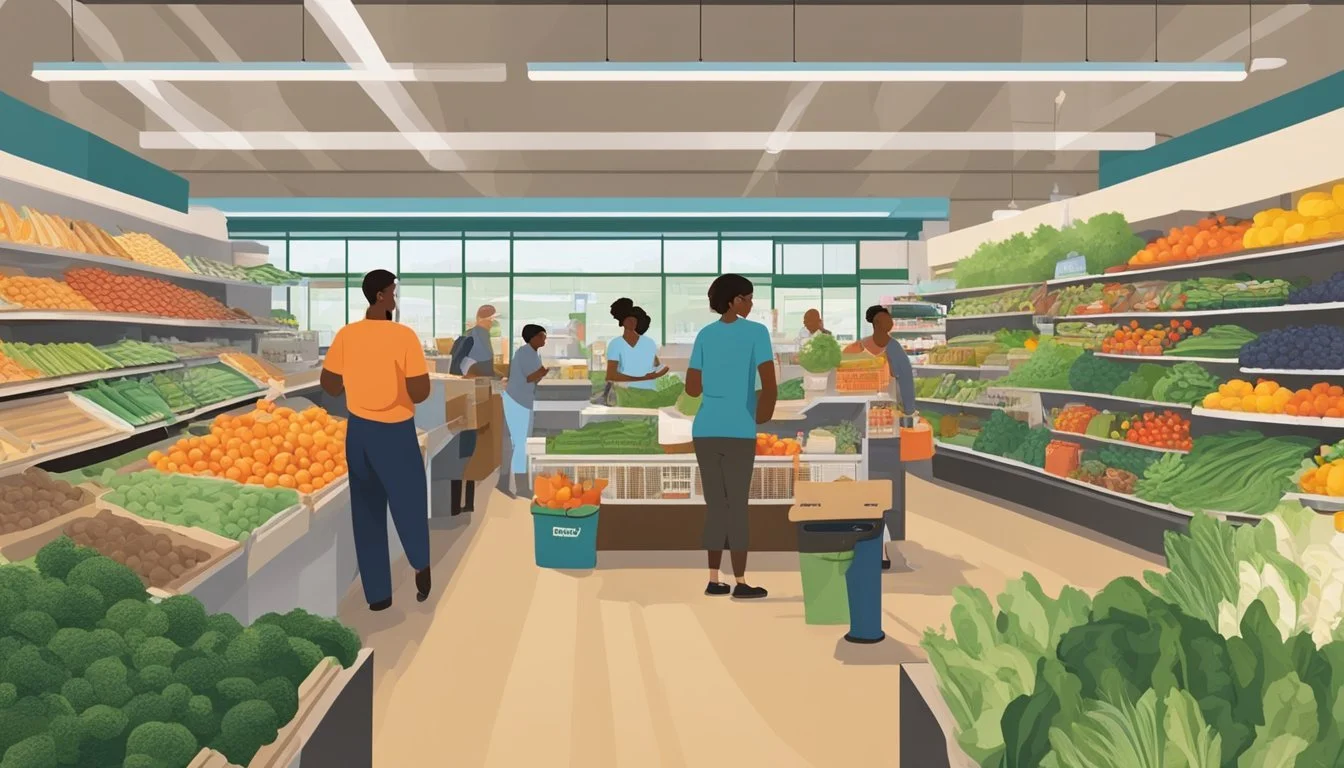Guide to Food Co-Ops in Atlanta, GA
Your Essential Resource
Atlanta, Georgia, known for its vibrant culture and diverse culinary scene, is also home to a thriving community of food co-operatives. These co-ops foster an environment of local support and sustainability by providing access to fresh, locally-sourced produce and goods. They operate on a model of collective ownership, which means that they are typically owned and governed by their members, who share in the benefits and responsibilities of the cooperative.
Food co-ops in Atlanta are more than just alternative grocery stores; they are hubs of community activity and education about healthy living and food sourcing. For instance, Sevananda Natural Foods Market offers an array of organic products and emphasizes community wellness, while other co-ops like Fresh Harvest and Your Dekalb Farmers Market connect consumers directly to local farmers and artisans. This direct relationship empowers consumers to make informed choices about where their food comes from and contributes to the local economy.
Participation in Atlanta's food co-ops goes beyond shopping. It offers an opportunity for residents to engage with their food system, to volunteer, and occasionally to have a say in the governance of the cooperative itself. Through these interactions, members build a stronger sense of community and shared purpose, something that extends well beyond the walls of the co-op.
Understanding Food Co-Ops
Food cooperatives, commonly referred to as food co-ops, operate on the ethos of quality, value, and community empowerment. They exemplify a commitment to member control and community support.
Definition and Principles of Co-Ops
A food co-op is a grocery enterprise owned and democratically governed by its members, who often have a say in its operations, guiding policies, and product selection. The defining principles include:
Voluntary and Open Membership: Co-ops are open to all individuals willing to accept the responsibilities of membership.
Democratic Member Control: Members have equal voting rights (one member, one vote) and participate in decisions.
Economic Participation: Members contribute equitably to, and democratically control, the capital of the cooperative.
Autonomy and Independence: Co-ops are independent organizations controlled by their members.
Education, Training, and Information: Co-ops provide education and training for members to contribute effectively to the development of their co-op.
Cooperation among Cooperatives: By working together, co-ops strengthen the cooperative movement.
Concern for Community: Co-ops work for the sustainable development of their communities through policies and programs accepted by the members.
Benefits to the Community
Food co-ops often provide significant benefits to the local community, including:
Local Economic Support: By selling locally produced goods, co-ops keep money within the local economy, supporting local farmers and producers.
Education and Information: Co-ops focus on educating members and the public about food sources, nutrition, and environmental impact.
Healthier Food Choices: Many co-ops offer a range of organic and health-focused products not always available in conventional supermarkets.
Community Relationships: Co-ops foster a sense of community by creating spaces where people can meet, talk, and build relationships.
Sustainable Practices: They promote responsible stewardship of resources, often emphasizing environmentally friendly and sustainable practices.
History of Food Co-Ops in Atlanta
Food cooperatives reflect a commitment to community-led solutions to food access, provisioning, and local commerce. In Atlanta, GA, the history of food co-ops is exemplified by the endurance of Sevananda Natural Foods Market, which stands as the city's premier cooperative grocery store.
Sevananda Natural Foods Market, initiated in 1974, is a testament to Atlanta's embrace of the cooperative movement. Beginning as a small venture by a community dedicated to shared values of health and responsible consumerism, the co-op has evolved to become a cornerstone for organic and natural foods in Atlanta.
The cooperative model in Atlanta marries the city’s progressive values with traditional Southern hospitality, allowing consumers to purchase quality foods and simultaneously invest in their community. Sevananda not only provides food but also fosters educational opportunities about health, nutrition, and environmental stewardship.
Here's a brief timeline highlighting Sevananda's journey:
1974: Sevananda is established by a group of committed residents.
1980s-1990s: The co-op expands its range, catering to a growing consumer base seeking organic options.
2000s: Sevananda sustains growth despite the rise of national health food chains.
2019: The co-op celebrates 45 years, emphasizing its resilience and adaptability.
Atlanta's food co-op scene, symbolized by Sevananda's longevity, is a part of a larger, national cooperative movement that champions a more inclusive and sustainable food system. Through cooperative structures, individuals in Atlanta have seen the direct impact of their choices, fostering a sense of ownership and community rare in the conventional retail landscape.
How Food Co-Ops Operate
Food Co-Ops in Atlanta, GA, are collaborative efforts that operate on the principles of membership participation, volunteer involvement, and a structured process for food distribution.
Membership Structure
Food Co-Ops have a distinct membership structure where individuals pay a fee or purchase a share to become a member. Members often receive benefits, such as discounts on products and a say in the cooperative's governance. These entities are democratically controlled, and each member typically gets one vote, affirming the principle of equal say for all involved in the co-op.
Volunteer and Leadership Roles
Member involvement is crucial, and it extends to volunteer roles where they may assist in day-to-day operations, from sorting produce to managing food distribution. Leadership roles are often filled by members who are elected to serve on a board. This body makes strategic decisions, oversees the general management, and ensures the co-op adheres to its mission and values.
Food Distribution Process
The process of food distribution within a co-op is designed to be equitable and efficient. Food items are sourced, often emphasizing local and sustainable products, and then distributed to members at designated times and locations. Some co-ops, like FoodCommune in Atlanta, participate in food rescue, where surplus food is collected and redistributed to prevent waste and support community members in need.
The Role of Local Farmers and Producers
Local farmers and producers are essential to food co-ops in Atlanta, offering a pipeline of fresh and organic produce that supports both the local economy and sustainable agriculture practices.
Sourcing from Local Farms
Food co-operatives in Atlanta place a strong emphasis on sourcing produce directly from local farms. This not only ensures that the produce is fresh, but also that there is a significant reduction in the carbon footprint associated with long-distance transportation of goods. Farmers in the region often collaborate with co-ops, and their involvement allows consumers to access a diverse range of seasonal produce while supporting the local economy.
Variety of Local Produce Available:
Vegetables: Tomatoes, Leafy Greens, Peppers
Fruits: Peaches, Apples, Berries
Herbs: Basil, Thyme, Mint
Benefits of Fresh and Organic Produce
Local food co-ops prioritize the sale of organic produce, which is grown without the use of synthetic pesticides and fertilizers. This commitment to organics highlights a dedication to environmental health and personal wellness. Consumers benefit from the nutritional value of fresh, minimally processed foods, and can enjoy the flavors of truly ripe fruits and vegetables. Moreover, local organic farmers often use sustainable techniques that preserve soil health and biodiversity.
Advantages of Local Organic Produce:
Enhanced taste and freshness
Higher nutritional content
Reduced environmental impact
Products and Services Offered
In the heart of Atlanta, food co-ops offer an abundance of products ranging from locally sourced produce to specialty organic items. Co-ops are celebrated for their community-centric approach and their emphasis on providing healthful, sustainable options.
Variety of Food Items Available
Atlanta's food co-ops boast a diverse selection of fresh produce, including seasonal fruits and vegetables that are sourced from local farms. Shoppers can expect to find a colorful array of organic and non-GMO produce, ensuring quality and flavor. The meats section offers locally raised options, often including Ga Coastal White Shrimp and Louisiana Oysters. For those looking for pantry staples, a range of grains, breads and snacks are also readily available.
Specialty Departments within Co-Ops
Many food co-ops in Atlanta feature dedicated specialty departments to cater to specific dietary needs and preferences. The deli department provides an assortment of grab-and-go meals, perfect for a quick and nutritious option. For those invested in natural foods, there are aisles filled with health-focused products, including honey and other natural sweeteners. These co-ops not only focus on selling products but also support the well-being of their community through their offerings.
Tackling Food Insecurity Through Co-Ops
In Atlanta, cooperative grocery stores play a crucial role in reducing food insecurity by directly supporting low-access communities and by educating residents about nutrition and sustainable practices.
Community Support and Food Donation
Food co-ops in Atlanta actively engage with local communities to provide access to healthy food. They often run food donation programs where shoppers can contribute funds or items that the co-op then distributes to those in need. For instance:
Donation Stations: Co-ops set up places where patrons can donate food.
Round-Up Programs: Customers can round up their purchases to the nearest dollar with the difference going towards food donations.
This direct action empowers neighbors to support one another, ensuring that all community members have access to fresh and nutritious food.
Educational Programs and Partnerships
Atlanta food co-ops also place a strong emphasis on education. They partner with schools and community organizations to teach about nutrition and food justice. Notable efforts include:
Workshops: Sessions on meal planning and cooking with healthy ingredients.
School Partnerships: Collaborative programs that introduce students to sustainable agriculture.
Through these initiatives, co-ops provide the tools and knowledge necessary for individuals to make informed choices about their food, leading to enduring community health benefits.
Shopping at a Food Co-Op
When shopping at a food co-op in Atlanta, GA, customers can expect a community-oriented retail experience with an emphasis on local, organic products. Co-ops often allow members to influence business decisions, making the shopping experience distinctly democratic and socially responsible.
Experience for Shoppers
Shoppers at Atlanta's food co-ops enjoy a unique environment where they can purchase high-quality organic and locally sourced products. Unlike at conventional grocery retailers, co-op members may also be part owners of the store, providing them the opportunity to vote on key issues and have a voice in the business's direction. Non-member customers can also shop at most co-ops, but they may not access all member benefits such as discounts or special sales.
Navigating the Store and Finding Products
Co-ops emphasize a community-focused layout which may differ from traditional grocery stores. Products are often organized with a focus on local suppliers and seasonal goods. Here is how shoppers can sort through the store effectively:
Seasonal Produce: Look for clearly labeled sections that highlight seasonal fruits and vegetables.
Bulk Goods: Find a variety of grains, nuts, and spices available in bulk to reduce packaging waste.
Local Products: Keep an eye out for signage that identifies products from local farmers and artisans.
Shoppers can usually inquire with staff for assistance in finding specific items, as co-op employees are often very knowledgeable about the inventory and can provide insight into the sources and benefits of their products.
Community Outreach and Education
Community-based food organizations in Atlanta focus on engaging local residents through various educational initiatives. They provide workshops aimed at equipping individuals with practical skills for healthier living and maintain active communication channels to keep the community informed and involved.
Workshops and Cooking Classes
Atlanta food co-ops and community food banks run workshops and cooking classes that serve to educate the public on nutrition, food preparation, and budget-friendly cooking techniques. These sessions are designed to empower residents with the knowledge to make better food choices and raise awareness about the benefits of locally-sourced food. Participants have the opportunity to learn firsthand from experts about meal planning and to gain valuable insights into sustainable eating practices.
Newsletter and Communications
Newsletters are an essential tool used by Atlanta's food co-ops to keep their members and the broader community updated. They provide regular and reliable information on the availability of seasonal produce, upcoming events, volunteer opportunities, and the impact of community efforts on fighting hunger. These communications are clear and concise, ensuring that readers are well-informed about the co-op's activities and how they can contribute or benefit. Newsletters are typically distributed via email, however, they may also be available on community bulletin boards or local websites.
Sustainable Practices and Environmental Impact
Food co-ops in Atlanta are not just food distributors; they are at the forefront of sustainable practices and are committed to reducing their environmental impact. They aim to foster an inclusive and environmentally regenerative local food system.
Eco-Friendly Initiatives
Food co-ops in Atlanta have consistently sought methods to operate in an eco-friendly manner. Many co-ops were initiated by communities with the goal of offering food grown without synthetic chemicals. This approach minimizes the negative environmental impacts associated with conventional farming practices. Additionally, these co-ops focus on waste reduction efforts by providing bulk food options which significantly lessen the use of packaging.
Bulk Buying: Reduces packaging waste and encourages the use of reusable containers.
Chemical-Free Products: Supports a healthier ecosystem by avoiding synthetic pesticides and fertilizers.
Reducing Carbon Footprint Through Local Sourcing
By prioritizing local sourcing, food co-ops help decrease the overall carbon footprint associated with transportation of food products. Local sourcing not only supports Georgia's economy but also ensures the freshness of produce and reduces emissions due to shorter transport distances.
Local Sourcing:
Supports local farms
Decreases transport-related emissions
Ensures fresh, seasonal offerings
How to Get Involved
In Atlanta, engaging with food co-ops provides valuable support to the community and also offers educational opportunities. Individuals can contribute by becoming active members or donors, and in doing so, they become part of a cooperative movement that cares deeply about food accessibility and sustainability.
Becoming a Member or Volunteer
To become a member of a food co-op in Atlanta, GA, one should reach out directly to the co-op they are interested in. Each co-op has its own membership process, which typically involves an application and sometimes a membership fee. For instance, FoodCommune offers the option to join as a Shopper, Food Donor, Volunteer, Gleaner, or Farmer, providing a range of ways to get involved in their food rescue mission. Members often enjoy benefits such as discounts on purchases and a say in the co-op's governance.
To volunteer, individuals should contact the co-op to learn about current needs and opportunities. Co-ops like the Atlanta Community Food Bank rely on volunteers to help distribute millions of meals across the region every month, affirming the dignity of each person involved and building strong community ties through collaborative efforts.
Supporting Through Donations
Donating to a food co-op can take many forms—from monetary contributions to food donations. Entities such as the Atlanta Community Food Bank welcome financial donations, which can be made through their website, enabling them to continue their mission of tackling hunger in the area. Food donations are equally vital and can include overstocked items, which help supply food co-ops that focus on selling bulk and discounted items.
Additionally, local food co-ops also appreciate donations of time, expertise, and resources. By donating, individuals directly invest in the health and welfare of their community, ensuring access to quality food and consumer education.
Participating in Atlanta's food co-operatives, either through membership, volunteering, or donating, is a concrete way to contribute to a sustainable and equitable food system and to exhibit care for the well-being of the local community.
Food Co-Ops as an Alternative Retail Model
In Atlanta, GA, food cooperatives serve as a notable alternative to traditional grocery retailers. These member-owned entities prioritize community needs and equitable access to quality food. Food co-ops differ from standard grocery stores in several ways:
Ownership: Co-ops are democratically controlled by their members, allowing for a more inclusive decision-making process.
Economic Model: They often operate by redistributing their net profits back to the members, contrasted with traditional retailers that allocate profits to external shareholders.
Community Focus: Food co-ops typically foster local economies by selling regional products and supporting local producers.
The core values of co-ops stress the importance of meeting their members' needs equitably, rather than maximizing profits. As an alternative retail model, they put an emphasis on:
Accessibility: Striving to provide access to nutritious food for all community members, including low-income households.
Transparency: Operating with greater transparency concerning product sourcing and business practices.
Education: Offering educational resources to consumers about food, nutrition, and sustainable practices.
Food co-ops can play an instrumental role in creating a more equitable and sustainable food system. By focusing on community impact over profit margins, they provide a retail model that supports both local economies and global sustainability goals. In this way, food co-ops in Atlanta and beyond present a compelling alternative to traditional grocery retailers.
Success Stories and Challenges
The landscape of food co-ops in Atlanta paints a diverse picture of community engagement, local business strength, and the continual adaptation in the face of socio-economic challenges.
Case Studies of Local Co-Ops
Sevananda, Atlanta's only co-op grocery store, has been a beacon of success for over 45 years. It thrives as a community-driven establishment, underlining the potential longevity and resilience of cooperative business models.
The South Atlanta Food Cooperative, a partnership with Urban Recipe, enabled residents to have consistent access to affordable goods, indicative of successful community collaboration. It caters to around 40 family units bi-weekly, showcasing a community's capability to come together and support family-size needs through collective effort.
FoodCommune in Atlanta demonstrates a progressive model of cooperative involvement and growth. Relocating in January 2024 to 368 Candler Road, this initiative is praised for its multifaceted approach, harnessing diverse support from volunteers, gleaners, and farmers.
Overcoming Obstacles and Growing
Despite the triumphs, these co-ops have met significant hurdles. Sevananda has remained nimble in navigating shifting challenges, from market changes to varied customer needs. Its endurance highlights the importance and impact of flexibility and innovation in sustaining a co-op.
Local co-ops, like FoodCommune, often address logistical challenges, such as food rescue and distribution, head-on. Their growth and ability to scale reflect an acute understanding of the community's evolving needs and the necessity for direct action to ensure food security and equity.
Growth stories from these entities provide tangible evidence that, even in a climate fraught with obstacles, food co-ops can and do flourish. Community buy-in, responsive models, and a strong core mission appear central to this success.

